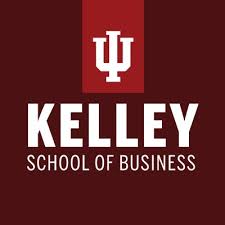
BLOOMINGTON – George Ball, associate professor of operations and decision technologies and Weimer Faculty Fellow at the Indiana University Kelley School of Business, has been invited to join a national advisory committee studying the security of the U.S. medical product supply chain.

The ad hoc committee, established by the National Academies of Sciences, Engineering, and Medicine in response to the Coronavirus Aid, Relief and Economic Security (CARES) Act, has been tasked with assessing and evaluating the dependence of the United States on critical drugs and devices that are sourced or manufactured outside of the United States and provide recommendations to improve the resiliency of the medical supply chain.
“Recent disasters and health emergencies including, but not limited to COVID-19, have increased recognition of the fragility of the U.S. medical supply chain,” reads the study’s description. “In the past several years, consolidation, competition, and the push for greater efficiency have led hospitals and healthcare systems to retain a more limited supply of drugs and medical devices on hand, adding additional stress to existing logistical challenges.
“Previous efforts have identified these supply chain issues generally as both a public health and national security risk, but only limited research has been conducted into the impact of shortages on patient care, the potential policy, regulatory and systems solutions that could help better prevent and mitigate the impact of shortages and the economic costs or incentives of implementing significant changes.”
“I am honored to have the opportunity to join this outstanding committee. Our work has important ramifications for U.S. public health.” Ball said.
Ball’s research has focused on medical device and pharmaceutical supply chain quality and in particular medical product recalls. He has conducted several collaborative research projects with the Center for Device and Radiological Health and the Center for Drug Evaluation and Research at the Food and Drug Administration. He is a co-principal investigator for a large multi-university, multi-million-dollar federal contract with the FDA to identify unique predictors of drugs shortage and drug quality risks.
Prior to coming to Kelley, Ball spent 11 years in various manager and director roles at two major medical device companies.
“In working with the committee, I am thankful that I can leverage my current research on drug supply chain quality, my contract work with the FDA exploring drug quality and shortages, and my previous medical device industry experience.” Ball said.
The committee will assess and evaluate the dependence of the United States on critical drugs and devices that are sourced or manufactured outside of the United States and provide recommendations to improve the resiliency of the medical supply chain.
The National Academies of Sciences, Engineering, and Medicine are private, nonprofit institutions that provide expert advice on some of the most pressing challenges facing the nation and world. The study is sponsored by the U.S. Health and Human Services Office of the Assistant Secretary for Preparedness and Response. Ball is joined on the study committee by a dozen other scholars, doctors, and medical professionals, including those at the University of Michigan, Carnegie Mellon University, American University, and Vanderbilt University.
Information George Vlahakis, Kelley School of Business



